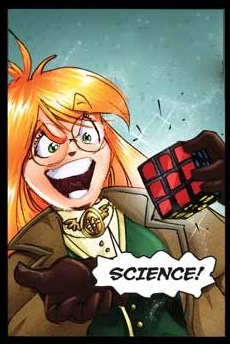
So, like six years ago, I wrote this post. You read the post and implemented its teachings. You used a spell checker and read the submission guidelines carefully. You really fine-tuned those first few paragraphs and made sure your full narrative arc was there. You inserted vivid sensory details and then checked your submission guidelines again. Good work!
Now let’s dig a little deeper.
Try to submit early. Now, to be honest, this doesn’t really apply to the competitions that I judge for, where a contest coordinator holds all the entries and releases them to judges in batches after the dates close. But for a lot of competitions, judges start reading entries as they come in. So if yours comes in the early trickle, you can expect it to get a little more attention and thought than the one coming in with the flood at the last minute.
Build the story to the theme. If your competition has a theme, the theme merits more than a small, inconsequential mention. The story should be written with the theme baked in, not sprinkled on top. On the other hand, make sure you’re not just taking the obvious route. A unique application of the theme is more likely to stand out in a judge’s mind.
Double check for conflict. Please. Pretty please. I can’t tell you how many beautifully written chunks of text I’ve had to mark poorly because there was no conflict, and therefore no tension. Conflict doesn’t have to be big or physical, but it does need to be present, or your story isn’t going to make an impression on readers (including judges).
Make sure goals and motivations are clear. Like conflict, characters’ goals and motivations are often missing in otherwise strong entries. Clarifying this doesn’t have to take a ton of space (which is great if your competition comes with a word limit), but it can really make characters’ choices make sense. Plus, goals and motivations make excellent conflict generators and drive the plot forward.
Look beyond the trope. This next one is specific to memoirs and autobiographies. Now I mean this in the kindest, gentlest way possible, but your life story should not be a cliché. If you are a woman, finding yourself on an international trip following your divorce is going to bore the judges silly. If you are a man, the drug-fueled sexcapades of your youth aren’t impressing anyone. If you find that your life does fit into some kind of trope, that’s okay! But really zero in and focus on what makes your story unique. You are special and amazing, so don’t write yourself like you aren’t.
Play with dialog. This is also a fairly specific tip, but I see quite a few competition entries that have no dialog whatsoever, or a line or two at most. That has worked well for maybe two of them. For most stories, well written dialog is waaaay better than the narrator describing what the character is thinking and doing for the entire story. It breaks up the monotony, shows readers things about your character, and tells us about character interactions. You don’t have to have dialog, but really be sure that’s the best route for your story.
Use beta readers. I know I harp on this a lot, but getting another set of eyes on your story is super helpful. Beta readers can point out confusing spots that make perfect sense to you and help you find the nitpicks your brain is too tired from drafting to see anymore. They can pick out the spots that maybe moved a little too quickly or slowly, and give you an early warning system for what contest judges might think, back when you still have time to do something about it.
Choose excerpts carefully. If your competition entry is a portion of a larger work, you’re going to have to be very thoughtful in choosing what chunk to send in. A natural choice would be the beginning of the larger work, but consider other passages as well. Choose something that has an entire story arc within the excerpt alone. If the beginning takes a long while to get going, that might not be your best choice for a short story competition. The best entries have a beginning, middle, and end, and that goes for excerpts as well.
So there we have it! My even-more-nitpicky tips for competition submissions! Not all of these tips will apply to all stories out there, so find what makes the most sense for your story and apply as needed. (Except the beta one. That applies to all stories everywhere.) Good luck in your submissions!
And until next week, happy writing!








